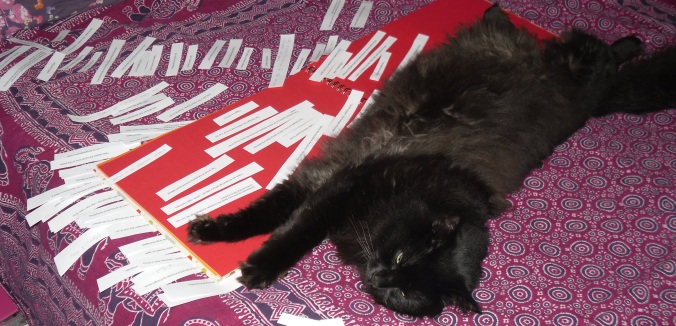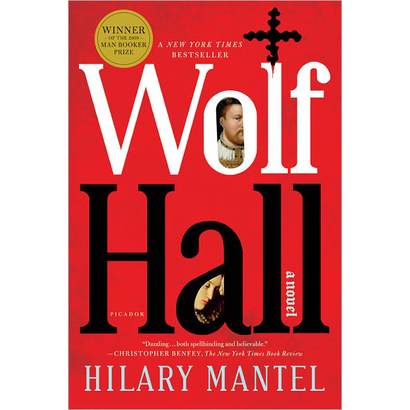What do you do to relax? I do various things. I read books, I watch films, I take baths. I play Chopin’s Waltz in F major on the piano – delighting my neighbours – and listen to ASMR videos on youtube (and if the latter has you thinking I’m probably mad then you’ll know it for sure by the end of this post).
Above all, though, I write.
Is she kidding, you’re thinking? She writes to relax. I should clarify, here, that I don’t mean proper writing with plot arcs, and meanings, and narrative drive. That’s like juggling whilst riding a unicycle – backwards – and, wonderfully absorbing and rewarding as that is (when it’s working), I’d never describe it as soothing.

Proper writing is like this.
No, no, I mean something called free writing. You let your pen loose on the paper (or fingers on keyboard) and, well, you just write. You don’t think, you don’t shape, you don’t plan. Your brain flops – I can actually feel it, somehow – and you splurge your thoughts onto the page. Automatically. Writing without really thinking about it. Like jiggling around in a nightclub, say, as opposed to performing the lead role in Swan Lake on stage for a ravenous crowd at Sadler’s Wells.

Free writing feels like this.
And, NB, when I say this is writing ‘automatically’, I don’t mean to say this is ‘automatic writing‘ – in which practitioners believe they’re communing with spirits: the only communing you’ll do here is with your own brain – your subconscious, specifically – which is far more entertaining (and, just occasionally, more alarming, if you’re currently unfamiliar with its deepest enclaves). The technique has been fairly widespread among writerly types since Dorothea Brande’s ‘Becoming a Writer’ way back in 1934 (which you can read in its entirety here, with an intro by John Gardner, whose own book, On Becoming a Novelist is equally deserving of your time and attention). We free-write in order to access our un- or sub-conscious, says Brande: the most playful – or childlike – part of our brains, that must function in tandem alongside the critical, conscious part (that decides if the plot makes sense, etc.) ‘You must teach yourself,’ she says, ‘not as though you were one person, but two.’
If you’ve never tried free writing before, you’ll find some great prompts here at practice writing.co.uk (choose a prompt that immediately zings in your brain – it’s more likely to resonate with you), or simply write ‘cold’ if you like (let your natural environment prompt you somehow). Back to Brande: ‘The unconscious is shy, elusive, and un- wieldy, but it is possible to learn to tap it at will, and even to direct it.’ The key here is practice. My students divide into two clear camps: those who groan at the ‘f’ of the ‘free’ (and would rather poke sticks in their eyes than be let off the leash), while the other half champ at the bit to get started (and often have poetry somewhere behind them). You need to keep trying. The older you get, the more likely it is that your brain has erected complex fortification systems – a series of signs reading do not disturb. But a writer must play. I’m afraid it’s essential. You can’t run away from yourself – not forever: this process, for me, feels like switching the light off and groping around in the dark. You won’t know, till you reach out and grab them, what treats you might find. There are all sorts of things in that darkness, believe me, and maybe you’d feel that much safer by switching the light on but don’t, please, I ask you: the best stuff is shy and elusive, remember. It shrinks from the light.
‘But this post,’ you’ll be saying around about now – if your memory is better than mine – ‘was supposed to have something to do with the music of prose, whatever the hell that means.’ Well, yes. I’m now getting to that. It’s not something you’ll hear very often from advocates of free writing, but this is the way I do it. Think back to the start of this post (it was ages ago) and you might recall something I said about Chopin? My twin loves are writing and music. The two come together sometimes. Where they meet with the least complication is here, in the dark of that treat-filled room where I do my free writing. The way I relax is to write for the rhythm alone: I don’t care about meaning, or sense, or self-censorship. All I can hear is the sound of the words, the ti-tum, ti-ti-tum, and the ebb and the flow of the language. Rhythm in English derives from a pattern of stressed or unstressed syllables: somehow I reach for an iamb or trochee or dactyl without even knowing exactly what iambs or trochees or dactyls are, but the rhythm entangles me, lulls me… relaxes me. Pushes me into the groove where I do my best writing, and opens the juiciest part of my brain where the good stuff is hiding.
Have you ever read prose that’s so fluid it’s sort of hypnotic? Tobias Hill (a poet as well as a novelist) is great at this; so, too, is his namesake, Tobias Wolff, in this ravishing extract from Old School: ‘it carried me back to those Sunday teas in the headmaster’s parlour, red leaves or snow or whirling maple seeds falling past the tall windows. The great Persian rug is covered with cookie crumbs. The air smells of the Greek master’s cigar. In the fat corner someone plays ‘Beautiful Dreamer’ on the tinkly upright, fragments of the melody floating just above our voices. We boys stand in circles…’ And so it goes on. It’s just lovely, right? Full of music and assonance. Swoon. (Although, crucially, Wolff breaks the rhythm sporadically: prose isn’t poetry, after all.) I could read it forever. In James Wood’s superb How Fiction Works he describes the ‘mathematical’ perfection of certain sentences; the writer’s ‘third ear’ that hears something beyond mere content. I don’t, by any means, lay claim to excellence as a writer (‘Authors come in two kinds,’ my mentor once told me. ‘Those who are natural storytellers… and, well… you’re the other kind, I think’) but the one thing I would say I’ve got is a fairly good ear for the music of prose. Which is bugger all use, of course, when you can’t tell a story, but, still, in my long writing life I’ve pulled one or two sentences out of the bag that I’m proud of. For me, that’s enough.
If you have too much time on your hands…
…you might like to read the sample that follows. It’s copied verbatim from one of my copious Free Writing files on Scrivener, written without even thinking about it, or stopping, or censoring anything. This here’s the part where you’ll think I’ve gone crackers, but read it aloud – very quietly, when nobody’s listening – and you might find it trips fairly easily (mad as it is) off your tongue.
And you know what? I quite like those card-playing dolls…
The dolls looked alarmed. They were sipping their cold tea from cups made of apples and holding their clenched hands alone on the table in front of them. None of their hands could manipulate scissors. They gazed in the far vacant distance. You never knew what they were thinking. Their eyes were completely devoid of sensation. Their bodies were heartless. They mostly wore tartan, or plaid as the little girl called it, and spoke of their long ago love affairs, over the border, when none of their hearts had been broken by boys, since they had none to break.
Was it good, the girl asked? This doll’s life? They replied that it was, that she ought to come try it. She said she preferred the boom-boom of her own real heart. They were sorry. They sat playing cards for a while. Could she join them?
The littlest doll had an ace. The fat doll with the wig the same pink as a radish was holding the kings and the queens, and the elderly doll with no eyes had a two and a four. They weren’t sure what the game was, or who was the winner. The time was passed tolerably well in the nursery. Still the clock ticked, and at last when the rabbity hands had advanced to the ten and the seven they sighed and explained it was high time for bed.
If you’ve made it this far, grab your pen or your pencil and write fifty words – without stopping – on owls, or hearts, or cards. Feel the flow of the sentences. Jig your way through them, as if in a nightclub, and reach for a word not according to meaning but sound. When I’ve done this in class I’ve seen students come up with all sorts of ridiculous things, but they’ve often had something – a sort of a spark – that their conscious writing lacked. ‘If you never let yourself go,’ as Germaine Greer (sort of) once said, ‘how will you ever know how far you might have got?’
Exactly.




















